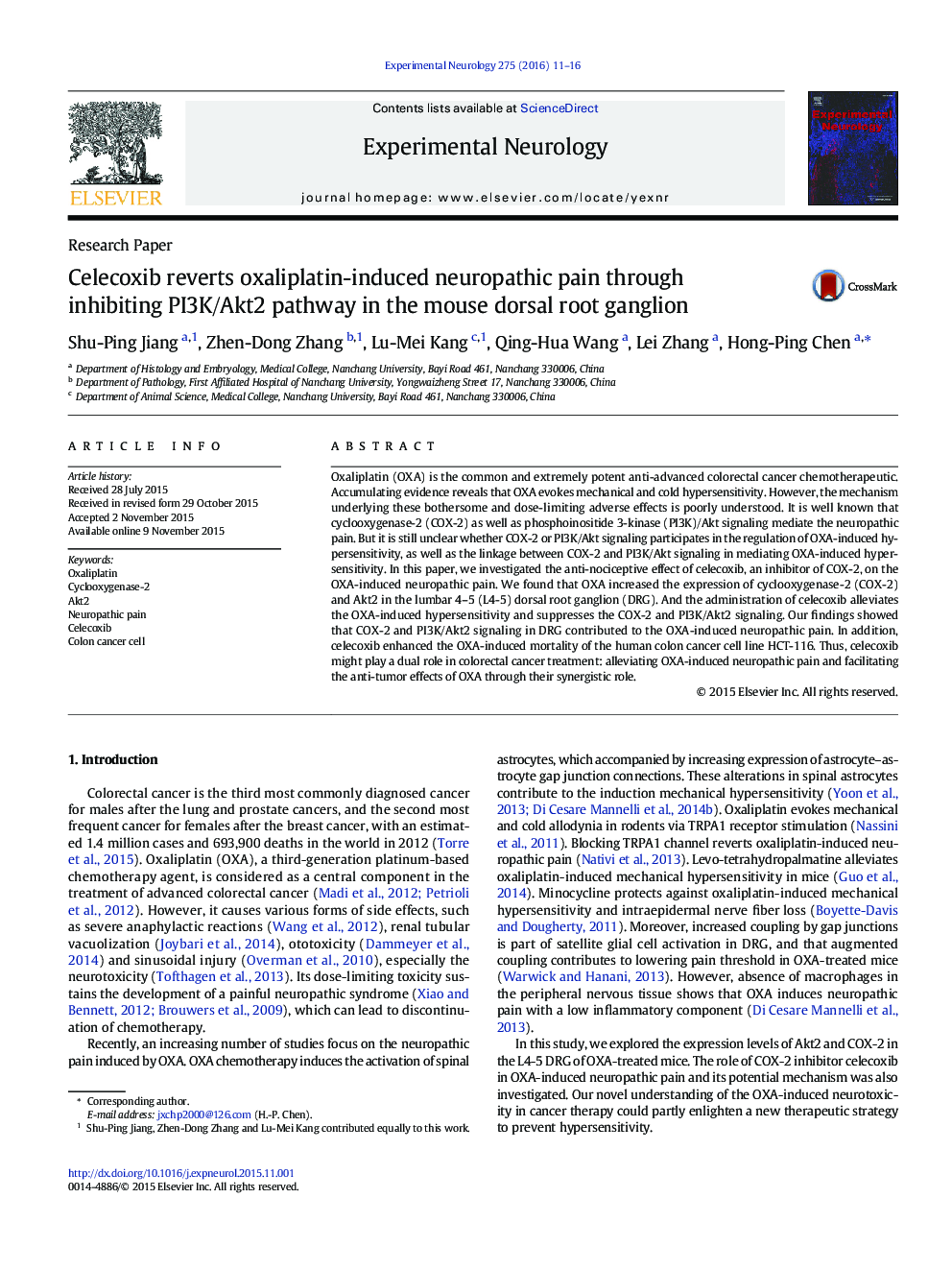| Article ID | Journal | Published Year | Pages | File Type |
|---|---|---|---|---|
| 3055348 | Experimental Neurology | 2016 | 6 Pages |
•Oxaliplatin increased the expression of COX-2 and Akt2 in L4-5 DRG.•Celecoxib, a COX-2 inhibitor, alleviated the Oxaliplatin-induced cold and mechanical hyperalgesia.•Celecoxib suppressed the PI3K/Akt2 pathway in mice L4-5 DRG.•Celecoxib inhibited tumor growth and enhanced the antitumor effects of OXA through their synergistic role.
Oxaliplatin (OXA) is the common and extremely potent anti-advanced colorectal cancer chemotherapeutic. Accumulating evidence reveals that OXA evokes mechanical and cold hypersensitivity. However, the mechanism underlying these bothersome and dose-limiting adverse effects is poorly understood. It is well known that cyclooxygenase-2 (COX-2) as well as phosphoinositide 3-kinase (PI3K)/Akt signaling mediate the neuropathic pain. But it is still unclear whether COX-2 or PI3K/Akt signaling participates in the regulation of OXA-induced hypersensitivity, as well as the linkage between COX-2 and PI3K/Akt signaling in mediating OXA-induced hypersensitivity. In this paper, we investigated the anti-nociceptive effect of celecoxib, an inhibitor of COX-2, on the OXA-induced neuropathic pain. We found that OXA increased the expression of cyclooxygenase-2 (COX-2) and Akt2 in the lumbar 4–5 (L4-5) dorsal root ganglion (DRG). And the administration of celecoxib alleviates the OXA-induced hypersensitivity and suppresses the COX-2 and PI3K/Akt2 signaling. Our findings showed that COX-2 and PI3K/Akt2 signaling in DRG contributed to the OXA-induced neuropathic pain. In addition, celecoxib enhanced the OXA-induced mortality of the human colon cancer cell line HCT-116. Thus, celecoxib might play a dual role in colorectal cancer treatment: alleviating OXA-induced neuropathic pain and facilitating the anti-tumor effects of OXA through their synergistic role.
